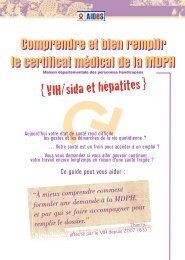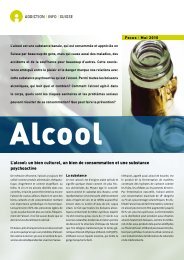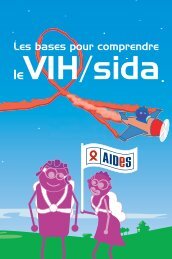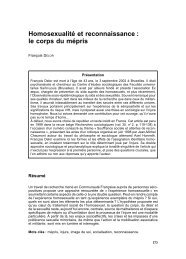Care and support for people living with HIV/AIDS
Care and support for people living with HIV/AIDS
Care and support for people living with HIV/AIDS
Create successful ePaper yourself
Turn your PDF publications into a flip-book with our unique Google optimized e-Paper software.
<strong>Care</strong> <strong>and</strong> <strong>support</strong> <strong>for</strong> <strong>people</strong> <strong>living</strong> <strong>with</strong> <strong>HIV</strong>/<strong>AIDS</strong>Better prospects <strong>for</strong> preventing infections in those <strong>with</strong> <strong>HIV</strong>Given the limited diagnostic facilities available in developing countries <strong>and</strong> the highcosts of many drugs <strong>for</strong> treating opportunistic infections, let alone antiretrovirals, theoption of prevention is receiving renewed attention. The bulk of evidence now suggeststhat a few relatively inexpensive drugs could help ward off severe illness <strong>and</strong>add months, if not years, to the lives of <strong>HIV</strong>-positive <strong>people</strong> in even the poorestdeveloping countries. Indeed, preventive drugs had begun to prolong survival in thehigh-income countries even be<strong>for</strong>e antiretroviral therapy was available.One drug is isoniazid, which has been shown to be effective in warding off 60% ofactive tuberculosis episodes in <strong>people</strong> <strong>with</strong> <strong>HIV</strong>. In at least one study, isoniazid preventionprolonged life significantly <strong>for</strong> those who were infected <strong>with</strong> both <strong>HIV</strong> <strong>and</strong> thebacillus that causes tuberculosis. A simple regimen costs on average just a fewcents a day <strong>for</strong> both the medicine <strong>and</strong> the health services involved.Tuberculosis prophylaxis is especially important because in half the cases <strong>HIV</strong>infectedindividuals develop a <strong>for</strong>m of TB which cannot be easily diagnosed <strong>and</strong>which thus goes untreated. Diagnosing disseminated tuberculosis requires sophisticatedlaboratory equipment that is largely unavailable in many of the poorer developingcountries. This is why UN<strong>AIDS</strong> <strong>and</strong> WHO have recommended since 1998 thata simple <strong>and</strong> inexpensive regimen <strong>for</strong> preventing tuberculosis should be part of theessential care package <strong>for</strong> <strong>people</strong> <strong>with</strong> <strong>HIV</strong> (see Table 1, page 98).New developments point the way to preventing other severe infections.Cotrimoxazole – a pill combining an antibiotic <strong>and</strong> a sulfa drug which has helpedprevent Pneumocystis carinii pneumonia, the biggest <strong>AIDS</strong>-related killer in highincomecountries – was tested <strong>for</strong> its preventive impact in Côte d’Ivoire. In one studyin Abidjan, where the drug costs of a 12-month regimen were just US$ 17.50, cotrimoxazoleprophylaxis resulted in significantly fewer severe infections (as measuredby hospital admissions). In another study, cotrimoxazole warded off infections sosuccessfully that it extended life by half a year. The drug combination appeared tobe effective in preventing some bacterial pneumonias, diarrhoeal diseases <strong>and</strong>infections of the blood, <strong>and</strong> possibly toxoplasmosis (a parasitic brain disease) <strong>and</strong>isosporiasis (a parasitic infection of the intestines).In the light of these hopeful findings it is urgent to implement cotrimoxazole regimensin sub-Saharan Africa as part of the essential care package <strong>for</strong> adults <strong>and</strong> children<strong>living</strong> <strong>with</strong> <strong>HIV</strong> (see Box 20). At the same time, scientists will need to keep carefulwatch so that the value of this drug combination is not undermined by the developmentof resistance to it.105











